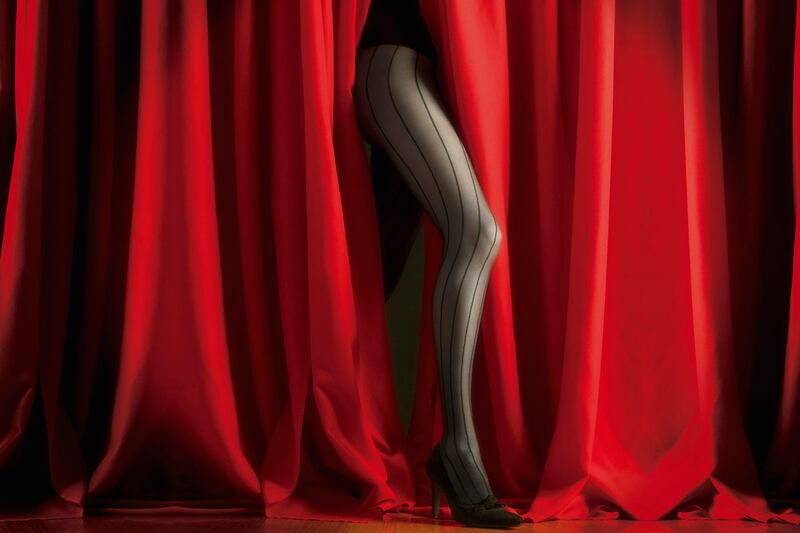In Texas, you don’t need a special permit to purchase an assault weapon. But soon, you may need one to take your clothes off.
State Rep. Bill Zedler, a Republican, has proposed a new bill that he says would help protect exotic dancers from sex trafficking. HB 337 would require strippers across the state to obtain—and “conspicuously display” while dancing—special licenses that reveal their real names. “They could wear it around the neck…or on their shoes…or attached to a head band,” Zelder helpfully suggested. In order to obtain the certification, dancers would have to prove they are over 18, get fingerprinted, pay an unspecified fee, and complete a course on human trafficking.

Zedler gained a reputation as an extremely socially conservative politician after he led a grassroots effort in his home district, near Fort Worth, to block a Hooters restaurant from opening. With this new bill, he tells the Houston Chronicle he hopes to “clean up the profession, reduce risks to the public, and prevent sex trafficking.”
Sounds reasonable enough. But in Houston—where similar citywide legislation was passed back in 1997—strippers say the special licenses haven’t helped protect dancers at all. In fact, they say they’re now at greater risk.
“I think the law is ridiculous,” Michelle, a 24-year-old dancer who preferred not to use her full name, told The Daily Beast. “It’s violating my rights. When you go to a bar and there’s a waitress, they don’t have a special ID with their first and last name on it. A lot of the guys who come to these clubs could be rapists and sex offenders.”
Michelle says she chose not to be a topless dancer because she didn’t want to have to display her name while she was working. Instead, she dances as a “latex girl,” as do many other women who’ve skirted the requirement to get the special license. Latex girls aren’t regulated by the Houston ordinance because technically, their areolas and butt cheeks are covered by light body paint. Women who use the pungent coverup make less money than fully topless dancers, but many seem to prefer the alternative.
To try to convince a girl to pay $325 of her hard-earned money for the license—most of these dancers are in school or looking for other jobs—is not easy,” says Dan Keyser, the general manager of Sunset Strip. In Houston, Sunset Strip is licensed as a “Sexually Oriented Business,” which means the venue pays $5 a head in taxes and can have fully topless dancers.
“This city was known to have best topless clubs. The National Auto Dealers Convention used to come here, the National Home Owners Convention—because that’s what guys wanted to do. Now they go to Vegas or Miami.”
As to whether the licenses have made his employees any safer, Keyser says not if “his girls” have to reveal their given names.
“For them to have to go out with their name—they may as well put their address on there too, so all these creeps can harass them at home,” Keyser says.
Besides safety and cost, a main worry for exotic dancers when it comes to getting a license is that their job would end up in some government database—maybe even on their permanent record, something future employers could see as a part of a background check.
“I asked a cop about it and he said don’t do it—it’s just a way for them to catch you easier if they do a raid on a club so they can take you to jail,” says Jane, a dancer in Houston who’s been in the industry for eight years, and preferred to use a pseudonym. “I didn’t want to have that I stripped on my record.”
According to the Administration and Regulatory Affairs Department of Houston, the decision to release the information that a worker has (or had) the special license is decided on a case-by-case basis, depending on the request.
Besides, to Jane, the idea that the Houston rules could become statewide law seems like an attempt to rid Texas of strippers altogether.
“Sounds like paternalistic government to me,” Jane says. “I think they’re trying to discourage women from entering this line of work. To me, it feels like slut-shaming. Law enforcement thinks these girls are sluts, and they’re trying to embarrass them by trying to get them to register as official sluts.”
Audacia Ray, who advocates for the rights of sex workers as the executive director of the Red Umbrella Project, doesn’t think the law is about slut-shaming. But she does think it avoids the real issues.
“I think displaying a license is really wrongheaded because it puts dancers at risk, but I think labor protections are a good thing,” says Ray.
“Lawmakers should be focusing instead on requiring ethical workplace practices in the clubs. What often happens is women are hired as independent contractors, and get charged a fee by managers for working while still being expected to work a certain amount of hours each week. That totally goes against labor law.” '
Jane agrees, and says in the end, her safety depends on good management.
“I’m glad people are having a conversation about this. But look—strip clubs aren’t going away, and I don’t know how effective government regulation is. What safety boils down to at strip clubs is good management. It’s like any other business.”
As for Rep. Zedler’s statewide bill, the politician has already conceded that the requirement for dancers to display their real name could be a safety issue which could be remedied with “a magnetic cover” on the license hiding the name.
And for the record: Zedler said that while he did indeed visit a strip club in college, it was nothing like these days. “It was strictly a deal where they would get up and dance. There was no touching or nothing like that. There was no complete nudity.” And he didn’t inhale.






